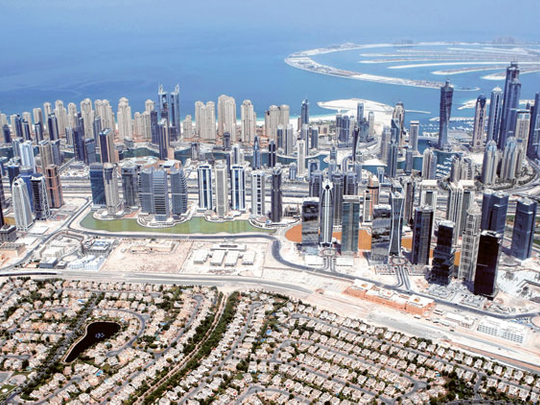
Dubai: The Dubai International Financial Centre (DIFC) is proposing a real estate investment fund in the UAE to attract investors to a range of property across the country, according to its chief economist.
"There is no well organised market structure for investing in real estate. It's not easy," said Dr Nasser Saidi on the sidelines of an Arab property conference yesterday.
"A real estate investment fund is important because it provides a facility to invest on a broad basis."
For investors, this means having the benefit of a diverse portfolio and property exposure across the country, region, socio-economic groups, and various areas of the cities, according to Dr Saidi.
"They don't need to be personally involved in management. We lack something like this," he said.
He predicted the initiative would attract a number of institutional and retail investors.
"There is a lot of appetite for investment in the region, even now," he said, pointing to the Arab world's demographics, growth opportunities, investments in infrastructures and improved laws around transparency.
A reasonable size for the fund would be from $100 million to $150 million (Dh367 million to Dh550 million), Dr Saidi added.
However, the current real estate legislation and ownership structures across the UAE make this a less feasible idea, said Ian Albert, regional director of Colliers International.
The lack of quality stock, unified legislation between the emirates and different ownership structures between expats and nationals complicates the idea of the fund, he said.
He suggested these issues would need sorting out before any fund could be activated.
Going forward, reforming and developing the home financing sector is one way to revive the real estate industry, Dr Saidi said.
Mortgage sector
In the UAE, the mortgage sector makes up only 5 per cent of the GDP compared with 93 per cent in Denmark, 78 per cent in the US, and 62 per cent in Spain, he noted.
He said the main reasons for this are the lack of development in the financing market, less protection of ownership rights, and a weak regulatory basis in the mortgage market.
During the conference, the DIFC proposed two initiatives aimed at restoring and building the house financing market.
The first proposal is to find a mechanism to use the mortgage according to Islamic banking principles and the second is to establish a mortgage insurance system that will motivate banks and finance companies so the mortgage sector can be developed.












